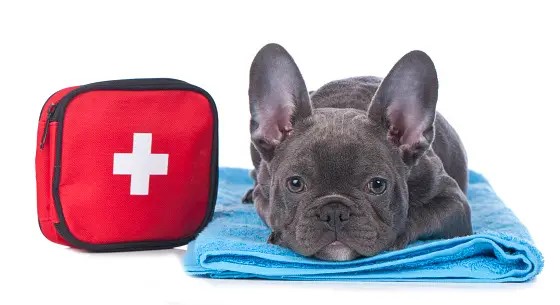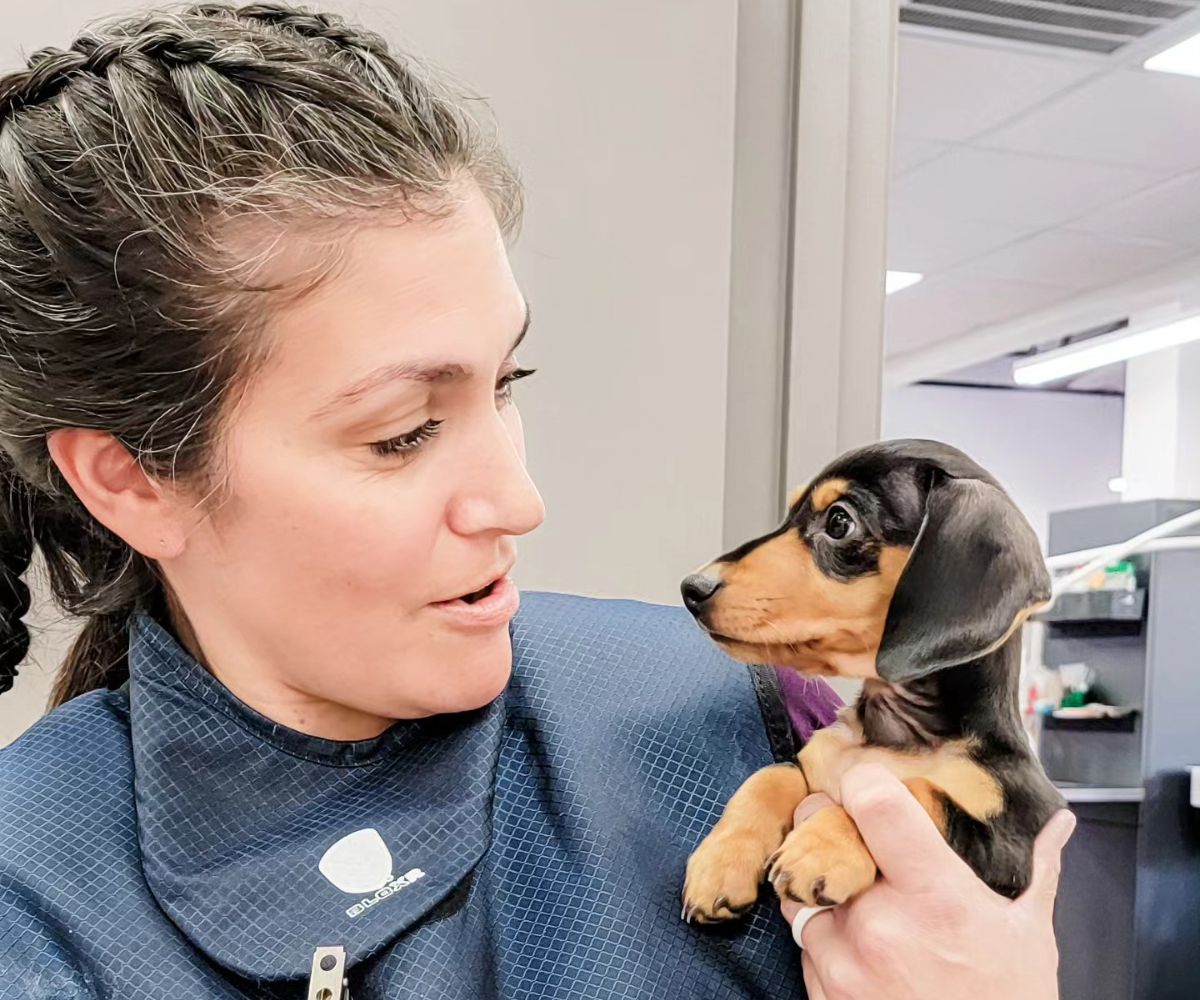Pet ownership brings immense joy, companionship, and love. However, it also entails a significant responsibility toward the animal’s health and well-being. Being prepared to deal with any health issue your pet may face is not just a duty but also essential for ensuring its quality of life. Pet owners should be ready to address their pets’ health problems for several reasons.

Even Pets Have Regular Health Issues
First and foremost, pets, like humans, are susceptible to various health issues throughout their lives. From minor ailments such as ear infections and skin allergies to more serious conditions like diabetes and cancer, pets can face a wide range of health challenges. Being prepared to deal with these issues ensures that your pet receives timely and appropriate medical care, which can significantly improve their chances of recovery and overall well-being.
Early Detection
Secondly, early detection and treatment of health problems can prevent them from becoming more serious and costly. Regular veterinary check-ups, proper nutrition, and a safe environment can help prevent many health issues. However, if a health problem does arise, recognizing the signs early and seeking veterinary care promptly can greatly improve your pet’s prognosis.
Furthermore, being prepared to deal with your pet’s health issues can help you make informed decisions about their care. Understanding your pet’s condition, treatment options, and prognosis can empower you to work with your veterinarian to develop a care plan that meets your pet’s needs and fits your budget.
Moreover, being proactive about your pet’s health can also benefit your well-being. Pets are often considered members of the family, and their health problems can cause emotional distress and financial strain. By being prepared to deal with your pet’s health issues, you can reduce stress and worry and enjoy a healthier relationship with your furry friend.
Prepare For Anything
Additionally, being a responsible pet owner means being prepared for the unexpected. Accidents and emergencies can happen at any time, and having a plan in place can mean the difference between your pet’s life and death. Knowing where to go for emergency care, having a pet first aid kit, and being familiar with basic first aid procedures can help you act quickly and effectively in an emergency situation.
First Aid Is Key

Knowing first aid as a pet owner is crucial for several reasons. It can help you provide immediate care to your pet in case of an emergency, potentially saving their life. Being able to administer basic first aid can stabilize your pet’s condition and give you time to get them to a veterinarian for further treatment.
Secondly, knowing first aid can help you recognize when your pet needs veterinary attention. Some conditions may not seem serious at first but can quickly become life-threatening if not treated promptly. Knowing first aid lets you assess your pet’s condition and make informed decisions about their care.
Furthermore, first aid knowledge can help reduce your pet’s pain and discomfort. For example, knowing how to clean and dress a wound can prevent infection and promote healing. This can greatly affect your pet’s recovery and overall well-being.
Additionally, being able to provide first aid can give you peace of mind as a pet owner. You’ll feel more confident and prepared to handle any health issue your pet may face, which can help you stay calm in an emergency.
Lastly, knowing first aid can strengthen the bond between you and your pet. Being able to provide care and comfort in their time of need can deepen your relationship and create a stronger sense of trust and companionship.
First Aid For Your Dog

Being prepared to handle minor injuries and emergencies is essential as a dog owner. Knowing basic first aid can greatly impact your pet’s well-being. Here are some first-aid essentials every dog owner should know:
Wound Care
Clean cuts, scrapes, and wounds with mild soap and water. Apply an antiseptic solution to prevent infection. For deep or puncture wounds, seek veterinary care.
Bleeding
Apply gentle pressure to stop bleeding. Use a clean cloth or gauze pad. If bleeding is severe or doesn’t stop, seek veterinary help immediately.
Fractures
If you suspect your dog has a broken bone, keep them as still as possible and seek veterinary care. Do not try to set the bone yourself.
Burns
Cool burns with cold water for 5-10 minutes. Do not use ice. Cover the burn with a clean, dry cloth and seek veterinary advice.
Heatstroke
Signs include excessive panting, drooling, and weakness. Move your dog to a cool, shaded area and offer small amounts of water. Wet their fur with cool water and seek veterinary help immediately.
Poisoning
If you suspect your dog has ingested a toxic substance, immediately contact your veterinarian or a poison control center. Do not induce vomiting without professional advice.
Choking
If your dog is choking, try to remove the object from their mouth using pliers or tweezers. If you cannot remove the object, perform the Heimlich maneuver by applying firm pressure to the abdomen just below the ribcage.
Seizures
During a seizure, keep your dog away from sharp objects and furniture. Do not restrain them. Time the seizure and contact your veterinarian afterward.
CPR
Cardiopulmonary resuscitation (CPR) may be necessary if your dog is not breathing or has no heartbeat. To learn proper CPR techniques for dogs, seek training from a veterinarian or pet first aid course.
Transportation
Know how to safely transport your dog to the veterinary clinic in case of an emergency. If your dog is injured, use a stretcher or a firm board to carry them.
Emergency Contact Information
Keep a list of emergency numbers, including your veterinarian’s contact information, nearby animal hospitals, and poison control centers.
First Aid Kit
Keep a well-stocked first aid kit for your dog. Include items such as gauze pads, bandages, adhesive tape, antiseptic wipes, scissors, tweezers, and a pet thermometer.
Knowing these first aid essentials and being prepared can help ensure your dog’s safety and well-being in an emergency. Regularly reviewing and updating your first aid knowledge and supplies will also help you be ready to handle any situation that may arise.
A Great Responsibility
Being a responsible pet owner involves more than providing food, shelter, and love. It also means being prepared to handle any health issues or emergencies that may arise. Knowing first aid is crucial, as it can significantly improve your pet’s well-being and even save its life.
By learning basic first aid techniques and keeping a well-stocked first aid kit, you can be better prepared to handle common pet injuries and emergencies. Knowing how to clean and dress wounds, recognize signs of heatstroke or poisoning, and perform CPR can help you provide immediate care to your pet when they need it most.
Knowing first aid can also give you peace of mind as a pet owner. You’ll feel more confident in your ability to handle emergencies, which can help you stay calm and focused in stressful situations. This can be beneficial for both you and your pet, as remaining calm can help you provide more effective care.
Knowing first aid as a pet owner is an important part of being a responsible and caring pet owner. It can help you protect your pet’s health and well-being, strengthen your bond with them, and give you the confidence to handle any situation that may arise.
So, enjoy a great relationship with your pet by staying aware and prepared for any health issues that may arise. Knowing first aid for your pet, and in this case, your dog will ensure a long and healthy life.
If your pet is encountering medical concerns, we encourage you to promptly contact your nearby veterinary clinic or animal urgent care facility. STATVet, located in Tulsa, provides specialized animal urgent care services, operational during evenings and weekends, to assist pet owners in addressing any emergent medical issues that their pets may encounter.

